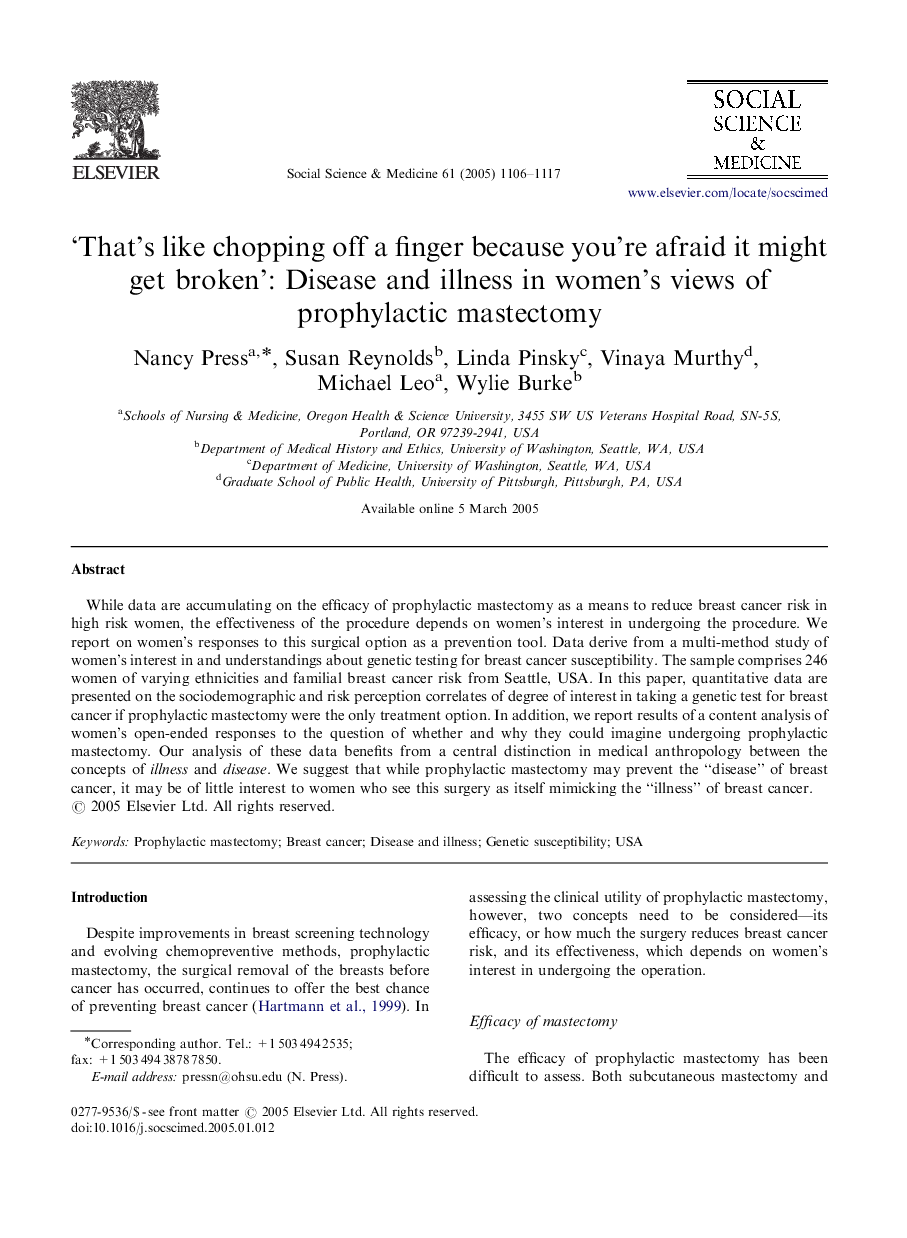| Article ID | Journal | Published Year | Pages | File Type |
|---|---|---|---|---|
| 10472346 | Social Science & Medicine | 2005 | 12 Pages |
Abstract
While data are accumulating on the efficacy of prophylactic mastectomy as a means to reduce breast cancer risk in high risk women, the effectiveness of the procedure depends on women's interest in undergoing the procedure. We report on women's responses to this surgical option as a prevention tool. Data derive from a multi-method study of women's interest in and understandings about genetic testing for breast cancer susceptibility. The sample comprises 246 women of varying ethnicities and familial breast cancer risk from Seattle, USA. In this paper, quantitative data are presented on the sociodemographic and risk perception correlates of degree of interest in taking a genetic test for breast cancer if prophylactic mastectomy were the only treatment option. In addition, we report results of a content analysis of women's open-ended responses to the question of whether and why they could imagine undergoing prophylactic mastectomy. Our analysis of these data benefits from a central distinction in medical anthropology between the concepts of illness and disease. We suggest that while prophylactic mastectomy may prevent the “disease” of breast cancer, it may be of little interest to women who see this surgery as itself mimicking the “illness” of breast cancer.
Related Topics
Health Sciences
Medicine and Dentistry
Public Health and Health Policy
Authors
Nancy Press, Susan Reynolds, Linda Pinsky, Vinaya Murthy, Michael Leo, Wylie Burke,
